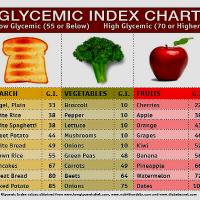Low-fat Or Low-carb Diet? Which Is Better?
Older women who ate less fat and more carbohydrates lost about 0.9 kg over 7 years, a large study showed. Although this result was considered by some obesity experts as disappointing, the lead author of the research team said it will help people to understand that the weight gain seen in United States is not necessarily caused by the low-fat diets.
Appearing in the Journal of the American Medical Association in Jan 2006, the study included more than 48,000 women, aged 50 to 79. They were followed for an average of 7 years and 6 months. One group of women lowered the fat in their diets while increasing fruits, vegetables and whole grains. The other group did not change their diets significantly.
The target fat content of the diet was 20 percent, but the women on the diet actually got about 30 percent of their calories in fat; their previous fat intake was about 39 percent. The women on the diet increased their carb calories from 44 percent to 53 percent, while the women not on the diet stayed at about 44 percent carbs.
The low-fat group lost, on average, 4.8 pounds in the first year, and then regained most of that weight. The non-diet group stayed at about the same weight over the 7 years. The original focus of the study was not on weight loss but on the low-fat diet's effect on heart disease and cancer. Incidentally, low-fat diets promote foods like grains and pasta, which are mostly forbidden by low-carb diets.
Interestingly, another report published in the Journal of American Medical Association in Feb 2006, which involved nearly 49,000 women above the age of 50, found that low-fat diets do not protect against heart disease, breast cancer or colon cancer.
In the United States, there has been a reduction of average fat intake from 40 percent of total calories to 34 percent, but the rate of heart disease has not declined. Moreover, the rates of many chronic illnesses have explored.
People tend to eat more refined carbohydrates when fats are reduced. This could be a reason why reduction of fat in American diets has not led to decrease in heart-related illnesses. Refined carbohydrates refer to food in which the high fiber bits (the bran and the germ) have been removed from the grain. White rice, white bread, refined white sugar and noodles made from white flour are examples of refined carbohydrates.
Experts do agree that diets like Akins and The Zone work, but are hard to stay on. People who succeed at maintaining a dramatic weight loss have changed their mindset and priorities and have made exercise and healthy eating among the top priorities in their lives.
It seems that a more tailored approach should replace a broad-based one-size-fits-all nutritional advice. Perhaps, a combination of good-quality fat with good-quality carbohydrates, coupled with substantial quantity of vegetables and fruits, complemented with moderate amount of exercise might be the answer to solve the problem of obesity.
Former Heart Surgeon Reveals ... How to prevent and even reverse heart disease - without drugs or surgery. Read more about Dr Robert's confession at: http://www.howtopreventheartdisease.com/dr-robert.html
Related Articles
-
Learning about the Foods to Eat on a Low Carb Diet
If you want to burn fat fast, one of the best diets you can go on is a
-
The Truth About Low-carb Diets And Your Health
Low-carb diets have been extremely popular in recent years. They boa
-
How You Can Simply Control Your Appetite
Staying in keeping with your daily diet can be difficult, particular
-
Low Carb and Lowfat Diets...A Scam?!
Low Carb and Low Fat Diets - A Scam?!If anyone knows anythi
-
Low Carb Recipes For Tastier Meals
There are people who have to conduct a diet using meals containing pr
-
Sugar Free Diets
More and more people are opting for sugar free diets.
- DON'T MISS
- Asparagus with Browned Butter and Poached Eggs
- Top 10 Low Carbohydrate Foods for Your Fat Shredding Diet Plan
- Proven Techniques For Weight-loss - Simple Methods Revealed
- The Sonoma Diet Secrets
- Attitude: The Forgotten Power
- Why Is Atkins The Most Popular Of All Low Carb Diets?
- Penne Rigate
- Adding Avacados
- Fed And Satisfied With The Slow Carb Diet
- Low Carb Dog Food: A Healthier Choice For Your Pet




